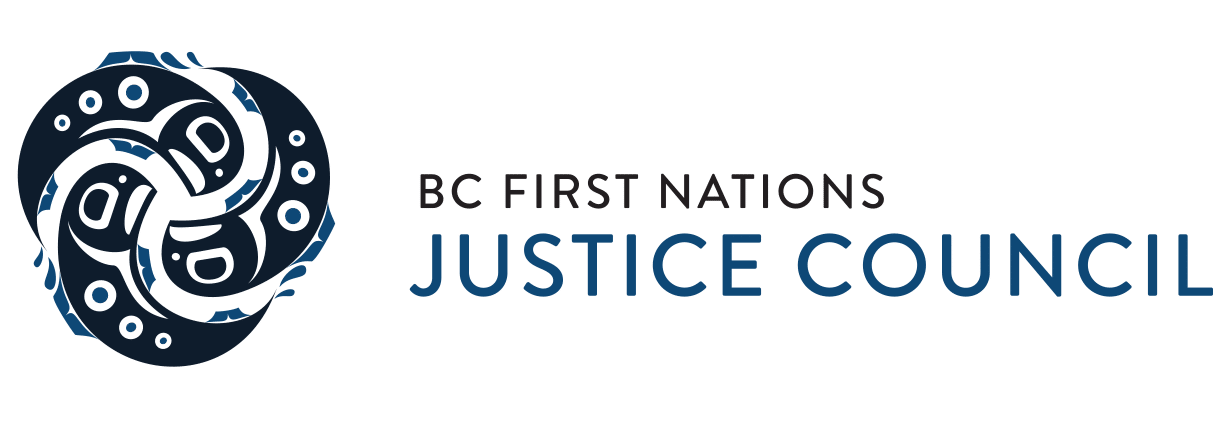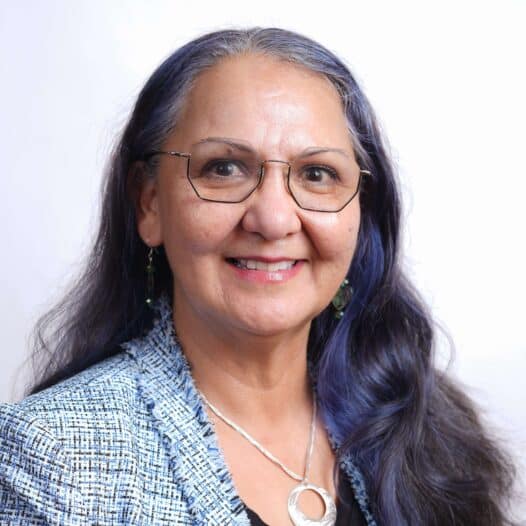
Lydia Hwitsum

Lydia Hwitsum
Lydia Hwitsum (Xtli’li’ye) has over 20 years of experience in leadership positions in Indigenous governance in B.C. and Canada. She has served five two-year terms as Chief of the Cowichan Tribes, and in 2019 was elected to a second term serving on the First Nations Summit Political Executive.
She has been a staunch advocate for Indigenous and human rights, presenting on local, national, and international stages, including at the UN Permanent Forum on the Rights of Indigenous Peoples. She brings to BCFNJC vast experience and a strong commitment to advancing Indigenous rights and justice.
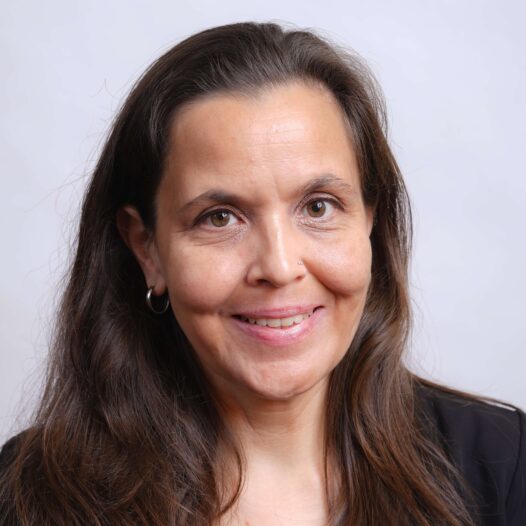
Andrea Hilland, KC

Andrea Hilland, KC
A member of the Nuxalk Nation and an Assistant Professor at the Peter A. Allard School of Law, Andrea Hilland has been an empowering advocate within the Indigenous justice landscape. Ms. Hilland has extensive experience as a practicing lawyer, and prior to her academic career, advocated on behalf of First Nations to assert their rights with respect to environmental issues.
She has also advised organizations such as the BC Human Rights Tribunal, the Canadian Bar Association of BC, and the Law Society of BC on Indigenous issues in the context of legal regulation. A former BCFNJC Policy Lawyer, Andrea holds a deep understanding of the work we are advancing around the resurgence and power of Indigenous laws.
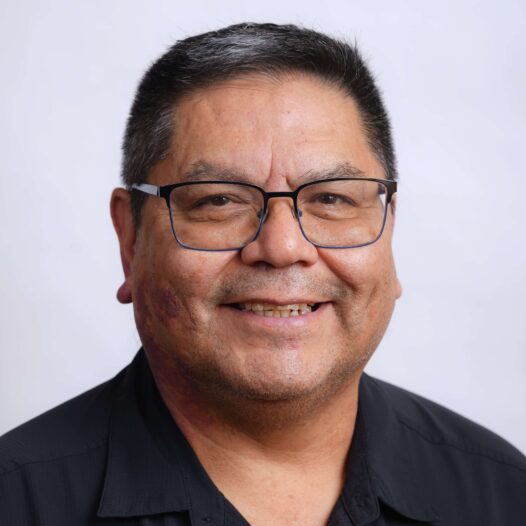
Boyd Peters

Boyd Peters
Boyd (Xoyet thet) was born and raised in Sts’ailes and has been elected to Council for more than 20 years. He is responsible for looking after Sts’ailes’ Xa’xa Temexw; an expression that conveys the spiritual, physical, and cultural connections that the Sts’ailes people have with the land, water, and resources in their territory.
Mr. Peters carried out the 1998 community consultation for the Elbow Lake Aboriginal-focused facility in partnership with Correctional Service Canada, which led him to his current position of Director of Sts’ailes’ Rights and Title Department. Boyd has also been an active member of the Kwìkwèxwelhp Citizens Advisory Committee and was appointed Chairperson in 2006.
He is quoted in the publication Kwìkwèxwelhp and Sts’ailes, A Historical Journey in Healing Aboriginal Offenders, saying “a common understanding of our people is that our strength is derived from our culture and spirituality. We are a prosperous First Nation that has developed many innovative made-in-Sts’ailes programs and services and are glad to provide these culturally appropriate services for the Kwikw’te’alex (Elbow Lake Brothers). We recognize that our brothers are vastly over-represented in the prison system and believe that our people have the capacity to help offenders in their healing path. We are open to sharing our cultural and traditional forms of healing for the reintegration of offenders into their home communities. The safety and well-being of all our communities benefit. It is a mutually beneficial relationship that has gained national and international recognition.”
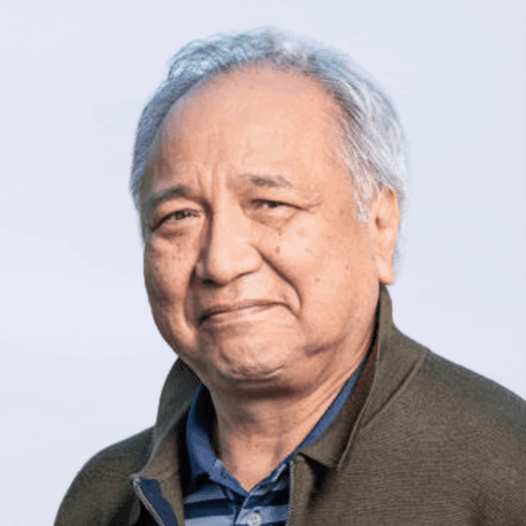
Grand Chief Steven Point

Grand Chief Steven Point
The honourable Grand Chief Steven Point (Xwĕ lī qwĕl tĕl) is a Director for BCFNJC, Council Representative for the Courts and Corrections portfolios, and Council liaison for the BCFNJC Elders and Knowledge Keepers Council. He was appointed by the First Nations Leadership Council.
Grand Chief Point is a lawyer, provincial court judge, and a leader of Skowkale First Nation, who has led an esteemed career deeply committed to community leadership and Indigenous justice.
He has practiced Indigenous law and criminal law in B.C. for over 40 years and was the first Indigenous lieutenant-governor of British Columbia; a position he held for five years.
Prior to that, he served as Chief of Sq’ewqéyl First Nation, and as Grand Chief of Stó:lō Tribal Council. He has been Chair of UBC’s Indigenous Advisory Committee, Chancellor of UBC, and was Chief Commissioner of the BC Treaty Commission, among numerous other roles.
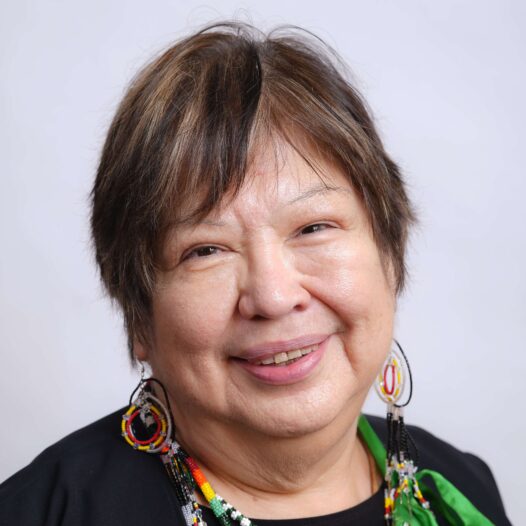
Dr. Judith Sayers

Dr. Judith Sayers
Dr. Judith Sayers (Cloy-e-iis) is President of the Nuu-chah-nulth Tribal Council and Chancellor of Vancouver Island University. She is also an adjunct professor with the Gustavson School of Business and the School of Environmental Studies at the University of Victoria. Dr. Sayers practiced law for 18 years in both B.C. and Alberta.
She has served as the Visiting National Aboriginal Economic Development Chair, and as an Assistant Professor at the Faculty of Business and Law at the University of Victoria. She is also on the board of the BC Achievement Foundation.
Dr. Sayers served fourteen years as Chief of the Hupacasath First Nation, located in Port Alberni, B.C. as Chief of her First Nation, she focused on capacity building and sustainable development.
Judith has been inducted into Canadian Council of Aboriginal Business Hall of Fame, has been: the recipient of the Bora Laskin Fellowship on Human Rights; a finalist for the Buffet Award for Indigenous Leadership; twice awarded the Woman of Distinction from the Alberni Chamber of Commerce; a recipient of the Silver Award from the Canadian Environmental Association for Climate Change; and inducted into the Order of Canada.
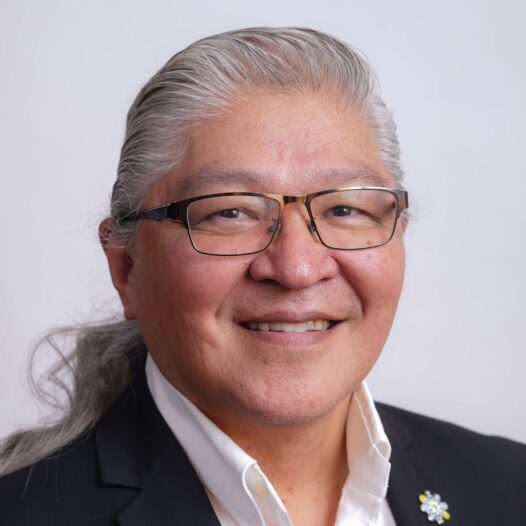
Clifford White

Clifford White
Clifford White (Nees Ma’Outa) is a hereditary leader and a former Chief Councillor of Gitxaała Nation, who has dedicated his life to serving Indigenous people. As an Elder, he has played an important role in BC’s First Nations/Indigenous Courts supporting holistic, traditional ways to restore balance and healing.
In addition to his involvement as an Elder in the New Westminster First Nations Courts, Clifford is a BC Treaty Commissioner, elected by the First Nations Summit. He is also a Commissioner with BC Housing and with BC Infrastructure Benefits. Clifford brings a wealth of expertise and wisdom that helps guide BCFNJC’s implementation of the BC First Nations Justice Strategy.
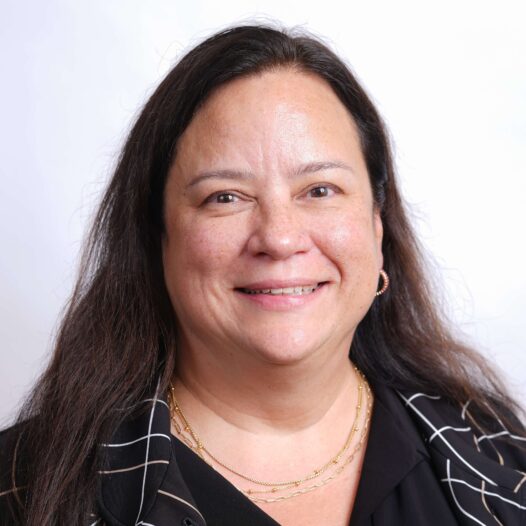
Kory Wilson

Kory Wilson
Kory Wilson (Hemas Kla-Lee-Lee-Kla), BSc. JD, has over 20 years of combined experience in post-secondary education, community development, and in practicing criminal defense and family law; good governance is a specialty and a passion.
Ms. Wilson is the Executive Director of Indigenous Initiatives and Partnerships for the British Columbia Institute of Technology, a member of the BC Law Society, and Chair of the World Federation of Colleges and Polytechnics Indigenous Affinity Group. She serves on several boards with Pearson College, the BC Women’s Foundation, the Downie Wenjack Fund, Future Skills Canada, to Genome BC.
She is sought-after speaker and strategist on advancing and ‘truth-telling’ about the past and moving forward towards Reconciliation. With a deep commitment to education, both formal and informal, she knows innovative and creative solutions are a must to move Reconciliation into ReconciliACTION.
She says: “Education and access to knowledge are key to moving everyone forward. When people know better, they do better. Diversity is a reality, but inclusion is a choice. Inclusion requires bold and courageous conversations and confidence to ensure systemic change and outside the box solutions. We can and must do better – Canada can and must do better. Together we are stronger.”

Lydia Hwitsum

Lydia Hwitsum
Lydia Hwitsum (Xtli’li’ye) has over 20 years of experience in leadership positions in Indigenous governance in B.C. and Canada. She has served five two-year terms as Chief of the Cowichan Tribes, and in 2019 was elected to a second term serving on the First Nations Summit Political Executive.
She has been a staunch advocate for Indigenous and human rights, presenting on local, national, and international stages, including at the UN Permanent Forum on the Rights of Indigenous Peoples. She brings to BCFNJC vast experience and a strong commitment to advancing Indigenous rights and justice.

Andrea Hilland, KC

Andrea Hilland, KC
A member of the Nuxalk Nation and an Assistant Professor at the Peter A. Allard School of Law, Andrea Hilland has been an empowering advocate within the Indigenous justice landscape. Ms. Hilland has extensive experience as a practicing lawyer, and prior to her academic career, advocated on behalf of First Nations to assert their rights with respect to environmental issues.
She has also advised organizations such as the BC Human Rights Tribunal, the Canadian Bar Association of BC, and the Law Society of BC on Indigenous issues in the context of legal regulation. A former BCFNJC Policy Lawyer, Andrea holds a deep understanding of the work we are advancing around the resurgence and power of Indigenous laws.

Boyd Peters

Boyd Peters
Boyd (Xoyet thet) was born and raised in Sts’ailes and has been elected to Council for more than 20 years. He is responsible for looking after Sts’ailes’ Xa’xa Temexw; an expression that conveys the spiritual, physical, and cultural connections that the Sts’ailes people have with the land, water, and resources in their territory.
Mr. Peters carried out the 1998 community consultation for the Elbow Lake Aboriginal-focused facility in partnership with Correctional Service Canada, which led him to his current position of Director of Sts’ailes’ Rights and Title Department. Boyd has also been an active member of the Kwìkwèxwelhp Citizens Advisory Committee and was appointed Chairperson in 2006.
He is quoted in the publication Kwìkwèxwelhp and Sts’ailes, A Historical Journey in Healing Aboriginal Offenders, saying “a common understanding of our people is that our strength is derived from our culture and spirituality. We are a prosperous First Nation that has developed many innovative made-in-Sts’ailes programs and services and are glad to provide these culturally appropriate services for the Kwikw’te’alex (Elbow Lake Brothers). We recognize that our brothers are vastly over-represented in the prison system and believe that our people have the capacity to help offenders in their healing path. We are open to sharing our cultural and traditional forms of healing for the reintegration of offenders into their home communities. The safety and well-being of all our communities benefit. It is a mutually beneficial relationship that has gained national and international recognition.”

Grand Chief Steven Point

Grand Chief Steven Point
The honourable Grand Chief Steven Point (Xwĕ lī qwĕl tĕl) is a Director for BCFNJC, Council Representative for the Courts and Corrections portfolios, and Council liaison for the BCFNJC Elders and Knowledge Keepers Council. He was appointed by the First Nations Leadership Council.
Grand Chief Point is a lawyer, provincial court judge, and a leader of Skowkale First Nation, who has led an esteemed career deeply committed to community leadership and Indigenous justice.
He has practiced Indigenous law and criminal law in B.C. for over 40 years and was the first Indigenous lieutenant-governor of British Columbia; a position he held for five years.
Prior to that, he served as Chief of Sq’ewqéyl First Nation, and as Grand Chief of Stó:lō Tribal Council. He has been Chair of UBC’s Indigenous Advisory Committee, Chancellor of UBC, and was Chief Commissioner of the BC Treaty Commission, among numerous other roles.

Dr. Judith Sayers

Dr. Judith Sayers
Dr. Judith Sayers (Cloy-e-iis) is President of the Nuu-chah-nulth Tribal Council and Chancellor of Vancouver Island University. She is also an adjunct professor with the Gustavson School of Business and the School of Environmental Studies at the University of Victoria. Dr. Sayers practiced law for 18 years in both B.C. and Alberta.
She has served as the Visiting National Aboriginal Economic Development Chair, and as an Assistant Professor at the Faculty of Business and Law at the University of Victoria. She is also on the board of the BC Achievement Foundation.
Dr. Sayers served fourteen years as Chief of the Hupacasath First Nation, located in Port Alberni, B.C. as Chief of her First Nation, she focused on capacity building and sustainable development.
Judith has been inducted into Canadian Council of Aboriginal Business Hall of Fame, has been: the recipient of the Bora Laskin Fellowship on Human Rights; a finalist for the Buffet Award for Indigenous Leadership; twice awarded the Woman of Distinction from the Alberni Chamber of Commerce; a recipient of the Silver Award from the Canadian Environmental Association for Climate Change; and inducted into the Order of Canada.

Clifford White

Clifford White
Clifford White (Nees Ma’Outa) is a hereditary leader and a former Chief Councillor of Gitxaała Nation, who has dedicated his life to serving Indigenous people. As an Elder, he has played an important role in BC’s First Nations/Indigenous Courts supporting holistic, traditional ways to restore balance and healing.
In addition to his involvement as an Elder in the New Westminster First Nations Courts, Clifford is a BC Treaty Commissioner, elected by the First Nations Summit. He is also a Commissioner with BC Housing and with BC Infrastructure Benefits. Clifford brings a wealth of expertise and wisdom that helps guide BCFNJC’s implementation of the BC First Nations Justice Strategy.

Kory Wilson

Kory Wilson
Kory Wilson (Hemas Kla-Lee-Lee-Kla), BSc. JD, has over 20 years of combined experience in post-secondary education, community development, and in practicing criminal defense and family law; good governance is a specialty and a passion.
Ms. Wilson is the Executive Director of Indigenous Initiatives and Partnerships for the British Columbia Institute of Technology, a member of the BC Law Society, and Chair of the World Federation of Colleges and Polytechnics Indigenous Affinity Group. She serves on several boards with Pearson College, the BC Women’s Foundation, the Downie Wenjack Fund, Future Skills Canada, to Genome BC.
She is sought-after speaker and strategist on advancing and ‘truth-telling’ about the past and moving forward towards Reconciliation. With a deep commitment to education, both formal and informal, she knows innovative and creative solutions are a must to move Reconciliation into ReconciliACTION.
She says: “Education and access to knowledge are key to moving everyone forward. When people know better, they do better. Diversity is a reality, but inclusion is a choice. Inclusion requires bold and courageous conversations and confidence to ensure systemic change and outside the box solutions. We can and must do better – Canada can and must do better. Together we are stronger.”
